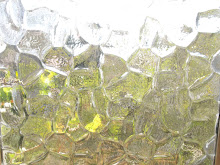Am reading How Buildings Learn by Steward Brand - an amazing book - and had to share this quote. There are many things I love about this book only 50 pages in to it. One, the language is accessible. The last architecture book I read took about 80 pages too long and 100 5-syllable words too many to make the point that building are affected by age and change whether we like it or not. That was On Weathering: The Life of Buildings in Time out of MIT Press. There's a tie-in here with MIT which I'll get to in a minute.
The second thing I like about this book is the picture of the author researching the book in a makeshift office he set up inside a shipping container he bought. He didn't even cut windows into the thing. He's got old photos pinned up down both sides of the container over a plywood and 2x4 work surface that also runs both lengths. He's got work lights overhead, books, a couch, a rolling chair and a stool. He's leaning in to study a picture and his feet are dangling several inches off the ground. The third thing I like is the pictures. Stew pulled out all the stops and hunkered down in some serious Reference Only sections of some prestigious institutions to get old old photos. He'll set up a series of 3-6 photos showing the same building over a period of 100 years to illustrate a point about how it changes with remodels - or to illustrate which of its neighbors survive and which get demoed. Architects should think about these things. A building is never finished - and if it's too crazy a design, intended for too specific a purpose, or otherwise ages without grace or is unadaptable, then boy it's failed to survive.
Here's the quote:
"A range of observers of architecture are now suggesting that the field may be bankrupt, the profession itself impotent, and the methods inapplicable to contemporary design tasks. It is further suggested that collectively they are incapable of producing pleasant, livable, and humane environments, except perhaps occasionally and then only by chance." -Design professor C. Thomas Mitchell
ZING! This is after a thorough humiliation of I. M. Pei's Media Lab building on the MIT campus. I also appreciate his earnest subjectivity. I liked that same thing about Zinn's People's History of the United States. Everything is biased; it seems more honest to admit your position and let the reader be the judge.

No comments:
Post a Comment